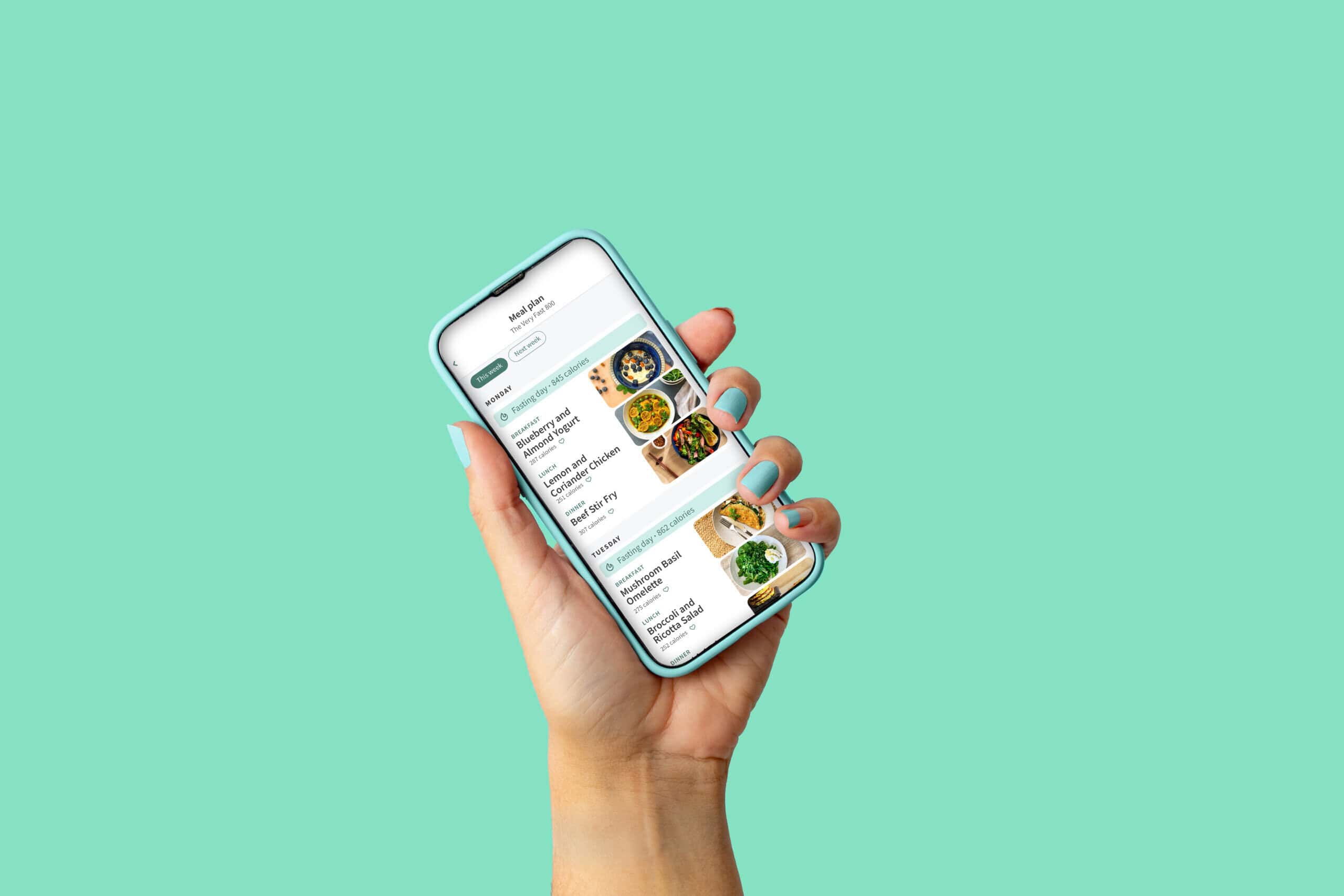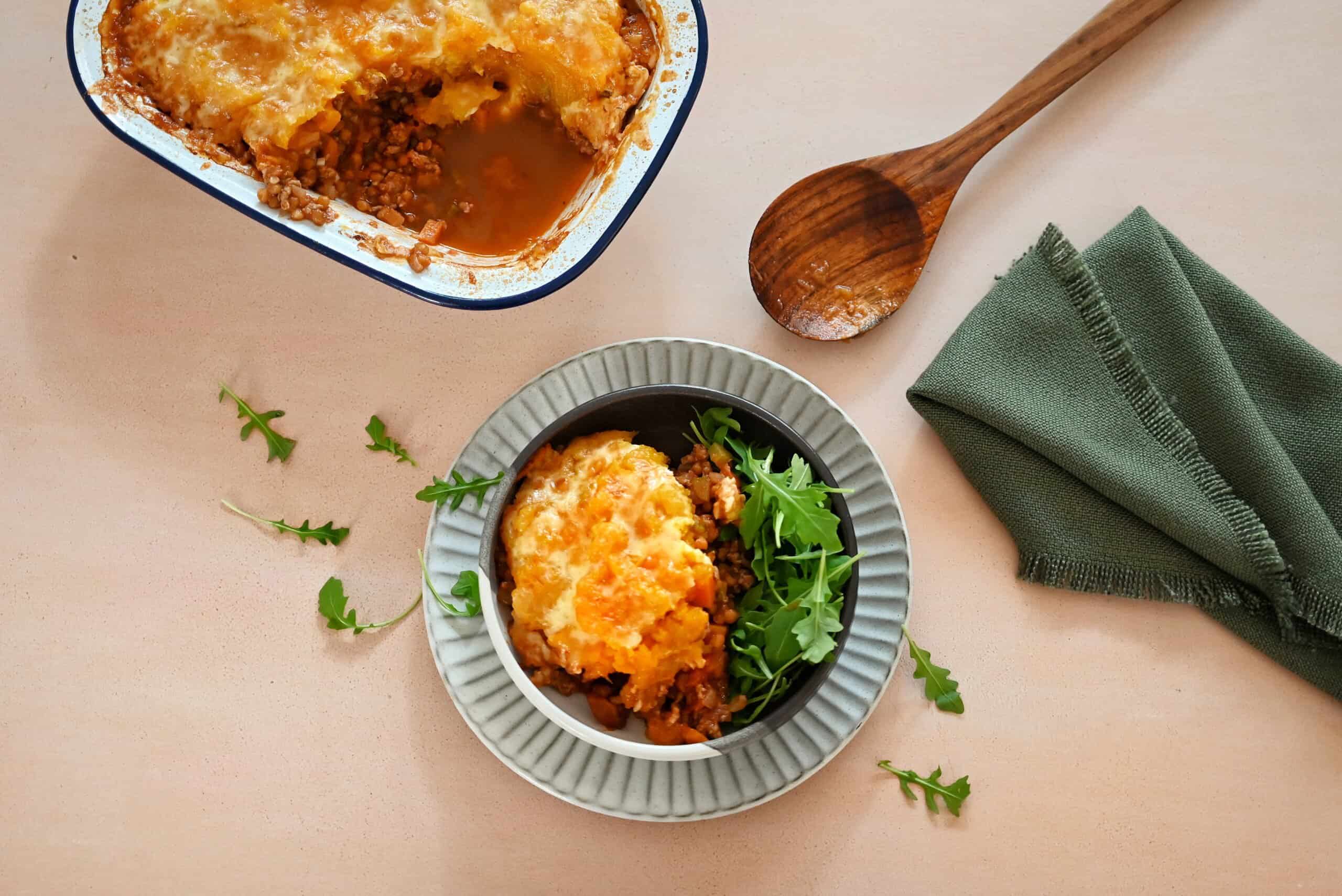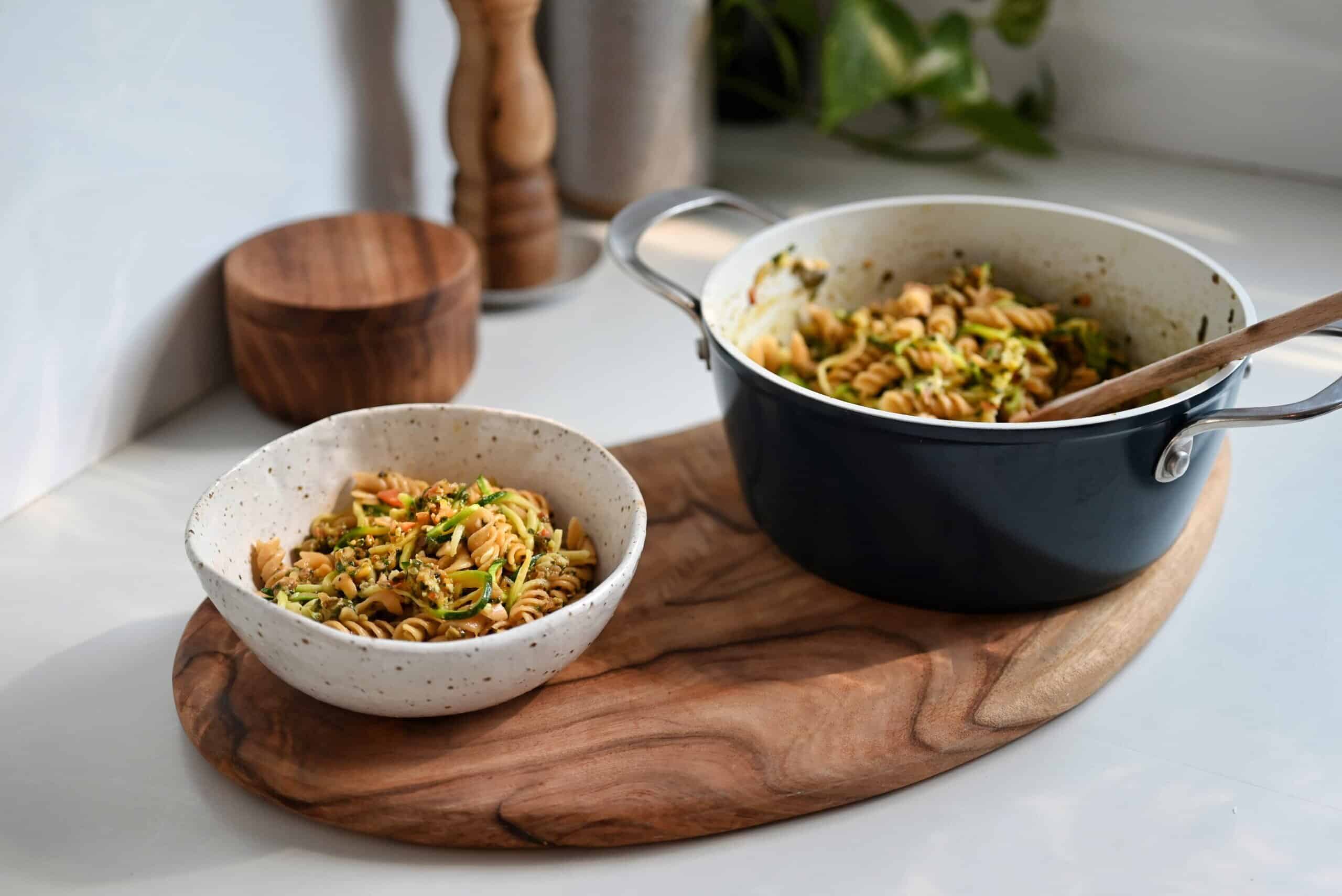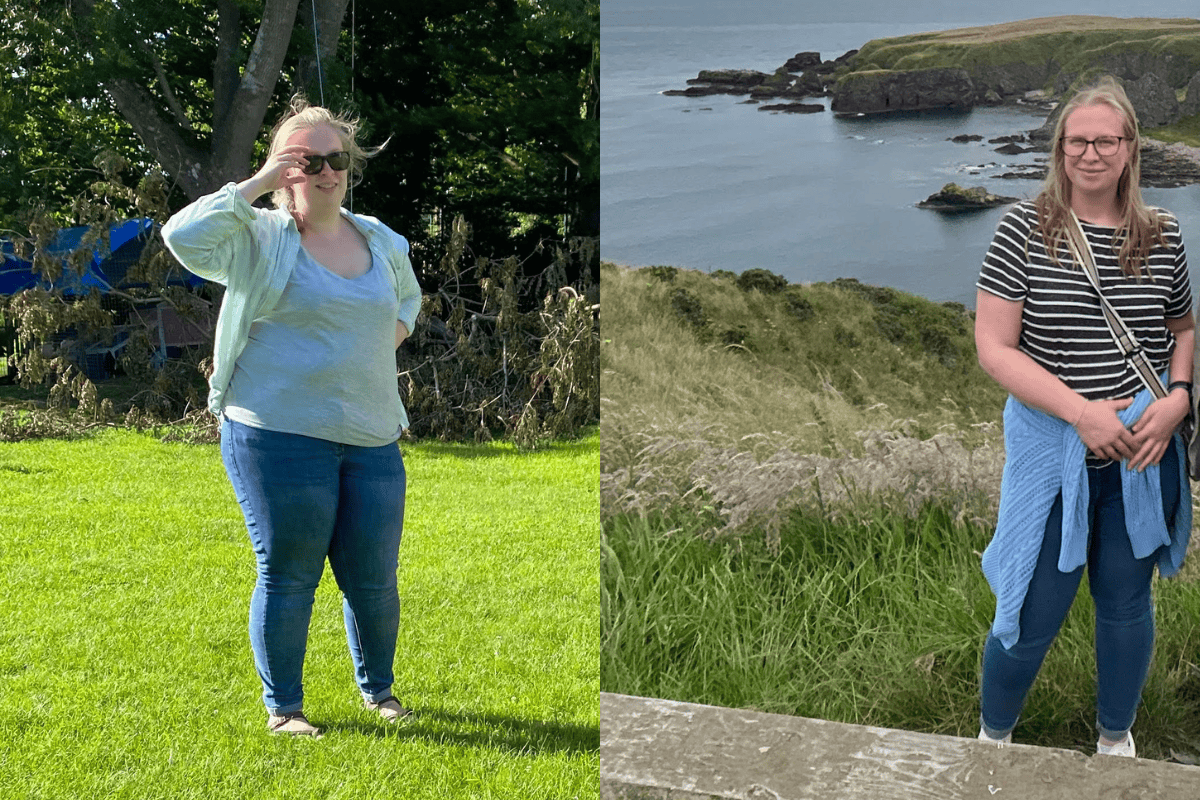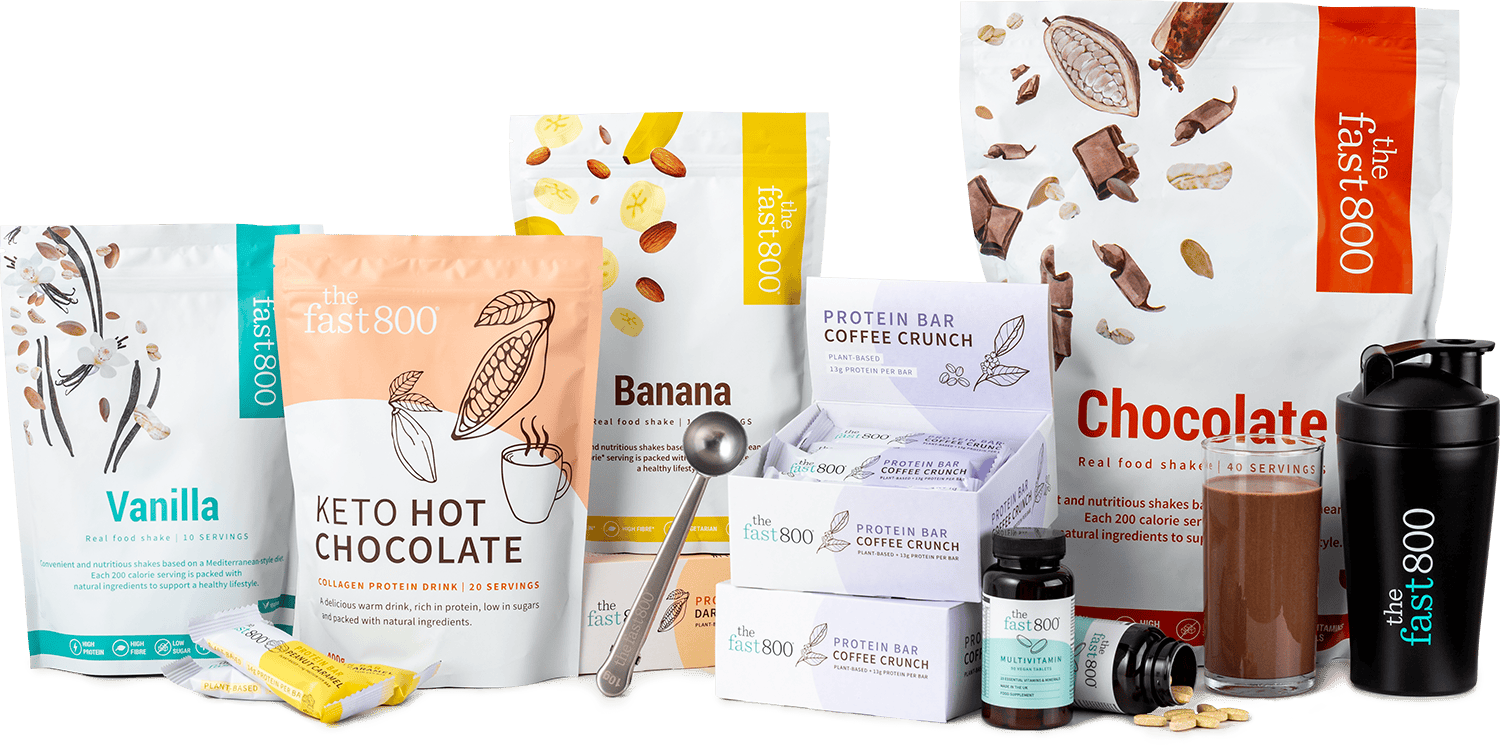The truth about rapid weight loss
We all know that carrying excess weight, particularly around the waist, is bad for our long term health. But the COVID-19 crisis has brought home some of the immediate risks as well. We know that people who are overweight have roughly a 30% increased risk of ending up in intensive care if they get infected, and if you are obese the risk doubles. We also know that being a healthy weight will give you the best shot at the COVID-19 vaccine working for you once it is available.
So I recently made a 3 part series for Channel 4 called “Lose a Stone in 21 Days” (a stone is 6.6kg) to help 5 overweight Brits kickstart their weight loss journey to achieve better health. Like many, their eating habits took a nose dive through the COVID-19 lockdown in 2020, but a short stint of rapid weight loss soon got them back on track.
Although they were quite young (age range 30 to 50) when we tested their blood we found they already, unknowingly, had some concerning health risk markers. Katie, a 34 year old teacher and mother of 2, was prediabetic, while Curtis, a 30 year old foreign language teacher, had worryingly high cholesterol and blood pressure. He was also snoring loudly and sleeping badly. If you have too much fat, particularly around the gut, then losing weight, is one of the most effective things you can do to not only improve your sleep, digestion and energy, but also to reduce your risk of serious illness.
Although each of the five people I’ve been working with had bespoke eating and lifestyle plans, all of them were designed using the basic principles of The Very Fast 800 approach to The Fast 800 diet. That is, each of them ate about 800-calories per day of moderately low-carbohydrate, Mediterranean-style food. Each of them exercised using a combination of HIIT and resistance workouts. And each of them practised time-restricted eating. This is considered a rapid weight loss approach, and it isn’t as scary as you might initially think.
While The Very Fast 800 can be followed for up to 12 weeks or until you reach a healthy BMI (whichever comes first), in just three short weeks, the average weight loss across the group was 7kg, just over a stone.
Katie (pictured left) not only lost over 7kgs and dropped two dress sizes but her HBA1c (a measure of her blood sugar levels) fell from the pre-diabetic range (anything above 42 mmol/mol) to a healthy 32.5 mmol/mol. She is delighted with the results!
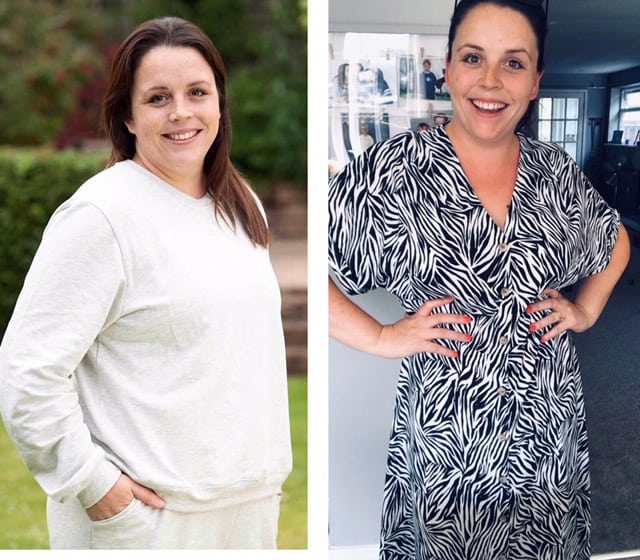
Curtis also lost over 7kgs, much of it off his waist and neck. He has stopped snoring and his cholesterol levels and blood pressure are now back to normal.
So, what are some of the things that this group of people have learnt along the way?
- We often underestimate the state we’re in.
Only one in 10 obese people realise they are in fact obese. Many of our participants weren’t aware of how much their bodies or health had changed throughout the years, or indeed, even throughout lockdown. Cue the looks of surprise when actual waist sizes were revealed, and blood tests showed some concerning results. While I’m not suggesting taking daily measurements or popping off to the doctor to request pathology on a weekly basis, understanding how to identify signs of declining health – poor sleep quality, clothes getting snug, higher blood pressure to name a few – is critical in managing your health long-term. When you can spot these things before they get out of hand, and once you have the diet and lifestyle tools in your kit, you can swiftly nip lurking health problems in the bud.
- A moderately low-carb, 800-calorie diet is a great kickstart.
A few weeks on the 800-calorie diet switches you from burning sugar to burning fat, which is a rapid way to change things and within a short time you stop getting hungry. Couple this with a reduction in snacking, and insulin sensitivity is improved – one of the key factors in preventing diseases like Type 2 diabetes. Read more about low carb diets and why they work. Following this motivating experience of losing weight, feeling better and brighter and learning how to eat for better health, it’s much easier to smoothly transition to a more gradual or maintenance approach, like The New 5:2 or Way of Life, and sustain your new lifestyle.
- Some foods are designed to be addictive, and make you fat.
One of the first things we did with the five participants is get them to clear out their fridges and pantries of all of the poor quality “foods” that were not going to serve a good purpose. It’s not necessarily a case of out of sight, out of mind initially – more, out of sight, much more difficult to consume. This is no surprise. Many junk foods are designed to be addictive, but with some strategies in place to combat cravings and fill up on satiating, nutritious food, it is possible to break the addiction.
- Maintaining muscle is just as important as burning fat.
On many fad diets, rapid weight loss may occur but because of the poor nutrition balance of the foods being eaten, the body doesn’t discriminate in losing both fat and muscle. This is unacceptable – the body needs to maintain a healthy muscle mass. This is especially important for ageing. The less muscle mass we have as we age, the worse nick we’re likely to be in and the poorer our mobility and overall quality of life. On all of the approaches of The Fast 800, and especially on The Very Fast 800, prioritising protein is key in preserving muscle mass while burning fat. It’s also a very useful nutrient that keeps you feeling full. Some of the participants had the occasional The Fast 800 shake to bump up their protein intake, and the menus delivered 50-60g of protein a day, just like the menus on The Fast 800 online programme.
Join our email community
Learn more about The Fast 800 approach to healthy living by receiving our free content, health tips and recipes as well as exclusive offers, delivered straight to your inbox.
And what have I learnt?
I was delighted with the results. The Fast 800 is built on science around intermittent fasting and Mediterranean-style diets, so it’s always pleasing to see contemporary science in action, in particular, the DIAMOND study, which was a key study my wife Dr Clare Bailey was involved in with Oxford University. The study examined the feasibility of using 800 calories of food (more specifically, moderately low-carb, Mediterranean-style food) as a treatment for people with Type 2 diabetes.
While none of the five participants I’ve been working with had Type 2 diabetes – although, one was diagnosed as pre-diabetic through our initial assessments – the participants’ results were consistent with those in the DIAMOND study. In the study, a test group was prescribed a rapid weight loss diet much like ours. Over the eight weeks of the trial, the average weight loss in the group was 9.5kg, and the test group members saw significant decreases in their blood sugars, blood pressure and many were required to reduce their medication. Alongside the rapid weight loss group was a control group following a standard British diet. They saw none of the improvements of the test group.
This just goes to show how big a factor diet can play in improving health, even after a nasty diagnosis like Type 2 diabetes. Having seen the progress of the science on this so far throughout the most recent years of my career, after I reversed my own Type 2 diabetes diagnosis with a similar approach, I’m excited to see how much further this scientific research can go.
How can you lose weight rapidly yourself?
If you have a significant amount of weight to lose, that is, if your BMI lands you in the “obese” or high end of the “overweight” categories, a short-term rapid weight loss diet may help you become healthier. Being short-term, the intensive 800-calorie period is achievable and becomes more-so as you become motivated by your quick weight loss. Not all calories are equal however, so I must stress that the magic comes from a moderately low-carb, Mediterranean-style diet. This means loads of delicious vegetables, which are terrific sources of fibre, plenty of protein, some healthy fats to keep you feeling full and a small amount of quality carbohydrates like beans and pulses.
It can be tricky and overwhelming to figure out the food on your own, particularly if you’ve some deep-seeded habits to overcome. If you’d like extra support in figuring out what to eat and “how to do it”, The Fast 800 online programme is a great option to get you started. On there, our nutritionist has compiled weeks and weeks of nutritionally-dense meal plans and recipes for you, and there are a host of health coaches to support you every step of the way. Something to consider!
Rapid weight loss diets are not suitable for everyone, particularly those who are under 18, pregnant or breastfeeding or are on medication. We recommend seeking advice from your GP before beginning any diet or fitness regime. Learn more here.
Dr Michael Mosley is an ambassador and co-founder of The Fast 800 online programme, a comprehensive plan offering support and step-by-step guidance to help you achieve long-lasting health. The 12-week programme is your first step to better health, with meal plans, recipes, shopping lists, Health Coach support, exercise and mindfulness plans and more.
“One word-Brilliant! I lost 28lb in 9-10 weeks and 7 inches off my waist. Also dropped 2 clothes sizes. Love this programme! 👍 I can’t praise The Fast 800 enough!!!”
Anne, Country Durham, lost 13kgs
SIGN UP TO OUR FREE NEWSLETTER






